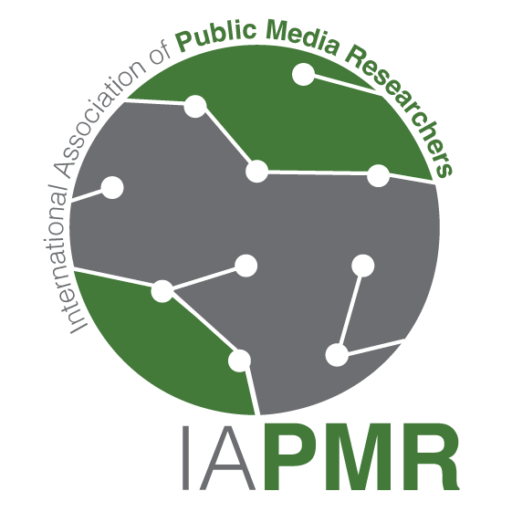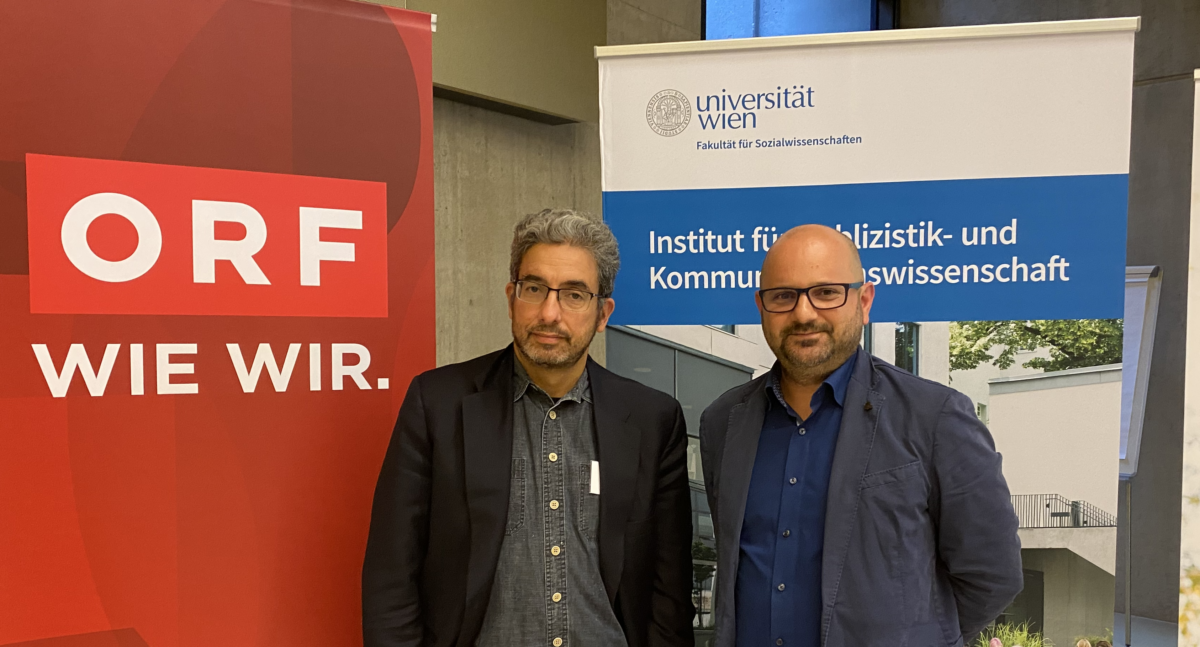One of the key events of the RIPE@2022 Conference in Vienna was the keynote of Marius Dragomir and Phil Napoli on the state of independent journalism. We had the chance to chat with them about their current projects and their relation to PSM research.
Marius Dragormir is the director of the Center for Media, Data and Society. He has spent the past decade in the media research field, specializing in media and communication regulation, digital media, governing structures of public service media and broadcasting and ownership regulation. Marius has recently published the report “The State of State Media“, as well as the project “The State Media Monitor“.
Philip Napoli is Professor in the Sanford School of Public Policy at Duke University. His work is focused on media institutions and media regulation and policy, with a special interest in local media. Professor Napoli is a firm believer in engaged scholarship, and has engaged in research consultations and collaborations with a wide range of organizations.
Can you tell us about your current projects? Which issues are in your spotlight right now?
Marius Dragomir: Currently, we are focusing on a few areas that we are mapping. One is the state media project that we will hopefully manage to update every year. We have another project we hope to launch in a couple of years to map global media. In addition, we have a third project win which we are trying to map policy developments in various countries.
Philip Napoli: We are moving into some of the news and digital literacy spaces with a collection of projects related to that. We are going to map the state-level policy environment. We are starting to see some states pass legislation around media literacy and that is interesting. But then we are also doing focus group research on how well people are able to navigate the complex news and information environment, what are the challenges they run into, what are the needs that are not being met… Related to that, we are looking into the impact that a subsidy might have on people’s knowledge, political attitudes, and behavior. For that, we are partnering with a local news source to provide for a limited period of time free and safe access to a local news source. Then we will see what that means when we compare it to a control group.
Which topics affecting public service media do you think will require the most involvement from researchers and practitioners in this short future?
Philip Napoli: I speak to the to the U.S. context where we are still in this process of trying to move the sort of ideological needle on the idea that a public service media can operate as an independent and reliable news source. There is a real cultural shift that needs to happen. However, that conversation is actually starting to take on. I think research can play a role by making people more aware of comparative work. We use the term “exceptionalism” when it comes to the U.S. We remain exceptionally ignorant of how well some of these public media systems have operated in other countries. So now just something as basic as promoting research from other countries would be vital for the U.S..
Marius Dragomir: First, I think there is a need, especially at this time, when looking at the trends across Europe and across the world, for researchers to engage more with public media in practice. In some countries, we see that happening. Second, there is a need for a kind of international new movement in support of public media in other parts of the world, where we see that the concept is being lost and is in many cases hijacked to justify the state media. I think we operate in a globalised world. The argument that “what is happening in sub-Saharan Africa does not impact on Austria” is not valid anymore. There are players that operate all over the world. In fact, some of them have giant operations that reach out to many countries. I really believe, for the purpose and for the future of the public media, wherever it still exists, that an effort to internationalise is really needed.
What would your advice be for a young scholar who is starting to work around Public Service Media?
Philip Napoli: We call it engaged scholarship in the U.S.: It is scholarship that is not just for an academic audience. Do not be afraid of that kind of academic work. Especially in this public media space, you have to be ready, willing and able to engage more broadly with other stakeholders, policymakers, obviously, media, nonprofits, foundations, and so on. And lots of times, some slings and arrows can come with that because you can make enemies. But you have to be willing to bear that consequence.
Marius Dragomir: Young scholars should look at the impact of public media on the population. In fact, the study that that I wrote on public media in the past two years was done in cooperation with the very young researcher who worked with our centre. She discovered the importance of state media in that project. Also, she was central to the project not only as a researcher but also as someone connecting with her generation. Everything that she did was extremely important because she communicated these ideas to the people she worked with. She told us that some of her colleagues had absolutely no idea that what they see on television is the result of a very complex set of situations, including political and funding decisions.

